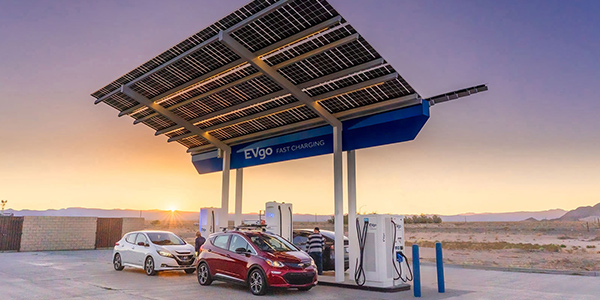The Massachusetts legislature needs to find a way to fast-track clean energy infrastructure disputes.
William Green, a professor of chemical engineering at the Massachusetts Institute of Technology, says the state should pursue a policy solution to development delays that arise when residents oppose infrastructure projects.
“We have a sad history of long delays on energy infrastructure projects, but the CO2 keeps accumulating every day as we go,” Green said at the Senate Committee on Global Warming and Climate Change hearing on Tuesday.
Legislators questioned researchers, lawyers, activists, utility officials and auto makers on how state policies can support electric vehicle adoption in Massachusetts and achieve emission reduction goals.
One barrier is the cost of passenger EVs, which is higher up front than a traditional combustion vehicle. But the price of EVs is starting to fall as battery technology improves. To prepare the grid for the state’s goal of deploying 300,000 EVs by 2025, new wind power facilities, transmission lines and substations are necessary.
Growing renewable sources of energy, such as offshore wind, make battery EVs more attractive, Green said.
With the current resource mix on the electricity grid, BEVs are better than hybrid cars, but not by much. Four BEVs emit as much as three hybrids. But with a greener grid, BEVs become more beneficial for the climate – seven BEVs would emit as much as three hybrid vehicles, Green said.
Local opposition to the construction of transmission lines and substations to support the transition to clean energy is an ongoing issue.
“I think that the legislature has to decide whether the disputes about the land use will go into the court system where they might get tied up for a very long time, or where there is some faster way to resolve them,” Green said.
The questions lawmakers need to help answer are whether transmission lines should be run through conservation land, if it is better to put transmission lines underground, whether land can be taken by eminent domain and who should be making these decisions, Green added.
Environmental justice communities like East Boston, which recently lost a years-long battle against a new electric substation, are traditionally overburdened with infrastructure and pollution. But they are also the communities that stand to benefit the most from clean energy and a statewide transition to EVs.
“Our communities are struggling to breathe,” said Sofia Owen, staff attorney for Roxbury-based environmental justice nonprofit Alternatives for Community and Environment. Diesel emissions from buses and trucks on busy thoroughfares feet away from homes in East Boston and Roxbury drive up high rates of asthma and other respiratory problems.
Low-income people of color are also more likely to rely on the bus and wait longer for the bus while breathing in dirty exhaust fumes, Owen testified at the hearing.
Building out interstate transmission in addition to local low-carbon energy sources will help Massachusetts green the grid faster to make the transition to BEVs as effective as possible in reducing emissions, Green told legislators.
Interstate connections also reduce intermittency issues with renewable sources of energy and allow Massachusetts to sell its excess wind power.




